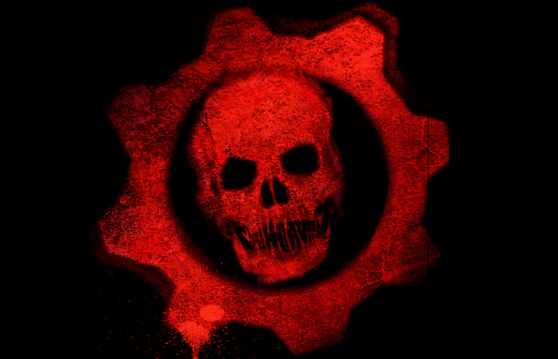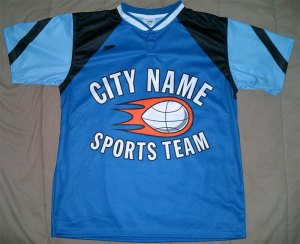
The man behind the popular Gears of War and Unreal Tournament series might have multiple personalities. In part one of our exclusive interview, game designer Cliff Bleszinski revealed how his wildly varying tastes (hardcore gangster rap and musicals, blood-soaked slasher flicks and romantic comedies) may have helped shape his products. Even his vacations reflect the two-headed nature of his vibrant personality as you’ll read below.
If you are familiar with the real Bleszinski, this all makes perfect sense. He went through a “trying way too hard” phase (discussed in part one) that turned off a lot of people. But if you take the time to get to know him, you’ll find a good-hearted (but still cocky) nerd who can hang in any conversations involving horror films, Transformers, and of course, video games.
Which side of Cliff Bleszinski will emerge from semiretirement if — no, it’s definitely when — the 20-year-veteran game designer returns to doing what he knows best? Part two of our interview reveals quite a bit about what he’s thinking about doing in his near future. (Hint: Pay particular attention to the way he talks about football … .)
GamesBeat: What are you up to these days? It feels like you’re doing a lot of un-relaxing, un-romantic traveling with your wife. You’ve been visiting the likes of Zynga, Double Fine, and other gamemakers.

Cliff Bleszinski: Well, let me just say, we just came back from a week in the Caribbean. [Laughs]
GamesBeat: It seems like you’re doing some work-related travel, but I can’t find a clear agenda there.
Bleszinski: Yeah. The thing is, over the years I’ve learned that I’m mentally the kind of guy who’s either dying to get from zero to 60 as fast as he can or just cruising along for a Sunday drive. I’m either all on or all off.
I’ve found the same thing in my semiretirement. There are some days where I sleep until 12:30, and I do absolutely nothing. I watch CNN and read Reddit and walk my dog and drink coffee and check on personal projects and investments and just hang out. There are other days when I’m on NeoGAF and Kotaku and writing down game design ideas and considering this or that other thing.
It’s the same thing when I’m on vacation. I’ll go to a nice vacation somewhere warm. One day I’ll just sit by a pool with piña coladas. Next day, I’ll have to do horseback riding and hang-gliding and all this crazy stuff.
I tend to alternate between those everywhere. It’s never the middle of the road for me. Whether or not that means I have some sort of bipolar problem, I don’t know. But as far as retirement goes, I was really not wanting to work anymore, and then I found myself getting bored after a while. Then I found that there are a lot of people who want to talk to me. Just talk and see if there could be a good potential fit in regards to possible professional future.
GamesBeat: Do you see yourself working for another company, or would you rather own your own studio?
Bleszinski: One of the main things I’ve been considering is opening my own studio. But the complication to that is, heavy is the head that wears the crown. If you have 150 people that you’re responsible for, with their families and their children and all that, that’s a lot of weight. The company depends on you. Being an employee of somebody else or being a consultant are also options.
At the end of the day, I just want to do something that motivates me, that gets me out of bed. I’ve been able to be financially successful enough that the only work I have to do is the work that I want to do. It’s a fortunate position.
Doing Unreal Tournament on PlayStation 2, porting our own fucking game, was absolute hell, and I don’t ever want to do that [sort of thing] again. That’s an example of something I never wanted to do. But by and large, at Epic, they kept us doing maybe 75 percent the stuff we wanted to do.
I also have other things going on. I have multiple investments. And just learning. The biggest thing that a lot of American kids aren’t taught is Finance 101 and Business 101. You don’t need an MBA or anything but just the basics of how a business is run: P and L, how loans work, mortgages … things like that.
I don’t know how it was for you. I went to public school in Boston — it was actually a very good public school — but none of that was ever taught to me. Granted, I dropped out of college after six months, but this is stuff that should be taught in high school or maybe even sooner. How to manage your money, as opposed to, “Here’s home ec; let’s learn how to make English muffin pizzas,” or “Here’s how to play dodgeball.” That’s great, but teach me about a five-year ARM [adjustable-rate mortgage], too. These are basic things.
GamesBeat: Will you definitely still make games in some manner, or is complete retirement an option for you?
Bleszinski: I want to be creative in some sort of fashion. I’m a pretty smart designer who has a good sense and a good track record, but unless I’m surrounding myself with my Avengers, I’m useless. I would need a ninja producer. I would need a ninja president for the company. I’d need a ninja lead programmer. All these people who would help supplement what I would want to do. Building that team would not be easy.
The thing is, I would want to get back to the triple-A space eventually, but the last thing I would want to do — and no offense meant to Curt Schilling [38 Studios] and John Romero [Ion Storm] — is to do what those guys did. “Let’s throw 300 bodies at it! Sure, we’ll just make it work!” That’s the equivalent of taking a garage band and having them play Wembley Stadium on day one. You have to learn how to work with people. You find that some people don’t work out and then you get a new drummer, so to speak. You iterate, and you find the voice of the team. It’s very similar to building a sports club or building a rock band.
GamesBeat: Can you see being an indie developer? Maybe a small title, something more experimental, just done with two or three guys?
Bleszinski: Possibly. I think that would be a good way to start. Indie has its strengths, but it also has its weaknesses. It’s a tough area. You’re sleeping under your desk and doing 16-hour days. You sink or swim of your own volition, which is beautiful, but at the same time you’re not getting the Times Square billboards and all that.
I’m not gonna lie. Doing Gears of War, I loved the large-scale aspect of it. We could leverage Microsoft to get the American Chopper TV special and have big launch events and see our ads on TV during Monday Night Football. That level of relevance comes with being triple-A.

When we started this interview, you were asking me if you’re going to get some sort of exclusive out of me, and all you’re currently getting is a window on the various options that I have. If you look at the state of the industry, the industry’s in a state of massive flux. Do you go triple-A? Do you go indie? Do you go console? Do you go PC? Do you go tablet? Do you go phone? That’s where I am — looking at all of my options.
The beauty of it all is that I can sit back and wait for the dust to settle a little bit over the next year or so, with all the next-generation consoles and everything else coming out, before I make a proper commitment to a possible publishing partner. Considering an Electronic Arts or a Ubisoft to work with … maybe they haven’t mastered the transition into this PC/tablet/free-to-play new world order. Maybe they’ll struggle. Maybe they’ll continue to kill with triple-A on console. I would like to wait and see a little bit longer before I make that bet.
GamesBeat: It sounds like you can afford to wait a bit.
Bleszinski: In the meantime, what I can afford to do is get a small team of contractors on board and start iterating on a few things here and there. Even if I had a publisher tomorrow who said, “Hey, Cliff, here’s $50 million dollars; go make your dream game,” I’d still only ramp up with a handful of people. I’d prototype defined goals and a number of assumptions that I thought would be cool as far as what kind of game I’d want to make. Only until I had something that was actually playable … . Then, once you have that goal, you start dumping amazing talent onto it. Then you start ramping up quickly. But before you do that, if you have a full team, you’re just wasting money.
GamesBeat: It sounds like your heart’s still in triple-A. What happens if, over the next year or two, you wait for this dust to settle, and then you find out that triple-A just isn’t there, and it’s really time for you to start thinking about social or mobile games? Would that be a tough transition for you?
Bleszinski: Well, the reason why I gravitated towards Fortnite before I left Epic was because that was Epic’s attempt to experiment with a lot of those things. I don’t want to show their cards in regards to what their plans are, but it would be a safe assumption to think that Epic is looking to do more in that space, just as everyone is.
The kind of model that I currently find most appealing: I look at a game like Hawken. There’s no real single-player component, which I personally think is a mistake for a sci-fi [intellectual property], but at the same time, it’s a handful of guys. It’s free-to-play, which is a ballsy move, but with the right backing it’d be a great example of a core game that exists in this new world order of free to play. Your League of Legends types of games.
I know some iPhone developers who make some pretty cool games. I’m not going to name them because then I’m going to sound like I’m giving them crap. But they make these games where you download it, and you play through it once for four or five hours. Then you’re done. My advice to them was, “Guys, make the chess board. Make Hero Academy. Make a game where you can asynchronously play back and forth with your friends.” As Words with Friends and Draw Something and all of those games showed, that’s a great model to go with. The interactions that are compelling are player-to-player interactions as opposed to this scripted thing that costs more money and takes more time and resources to build.
Before I left Epic, that was the movement I was pushing for. I was very public about this with everybody. What’s more important, story or gameplay? It’s the story of the gameplay. You’re giving the player a set of rules and variables and verbs that he can have his own experience come out of as opposed to making a completely linear hallway that has that same bridge collapse because that yields that same YouTube video. Your game should yield lots of awesome YouTube videos.
Look at even Halo multiplayer, with the way that the physics always tend on that. You get that one video of Warthog that flies across the map or the grenade that kills your teammate. It gets millions of views, and that’s free PR, too. Moving forward, the type of game I want to build would not be this super-linear Gears or Uncharted type of campaign game. It would be something that’s much more free-flowing in regards to the number of systems that work together to create new and emergent gameplay.
 GamesBeat: Just as a theoretical, outrageous option, let’s say a dream developer said, “Hey, I want you to work for me.” You’d be an assistant to someone like Mario creator Shigeru Miyamoto. At this point in your career, would that be an option for you?
GamesBeat: Just as a theoretical, outrageous option, let’s say a dream developer said, “Hey, I want you to work for me.” You’d be an assistant to someone like Mario creator Shigeru Miyamoto. At this point in your career, would that be an option for you?
Bleszinski: Not really. Here’s the thing. One of the reasons I wasn’t as happy as I always was at Epic in the last few years was because I was promoted to the position of design director, which meant that I wasn’t just responsible for Gears. I was responsible for all of the fun across all of the projects, which was fun for my ADD mentality where I could jump from project to project. But at the end of the day, I wasn’t the guy people would go to with things like, “What should we name this character?” or “I have a gun that shoots potatoes; do you think that would be cool?” or “Hey, how about one that shoots lasers that destroys that and turns it into mashed potatoes?”
I wouldn’t want to be going back to that intern-y type thing. You look at a guy like [Irrational Games creative director] Ken Levine. I think he has that good balance that I would find appealing. He’s also president of the company. It’s debatable whether or not that’s a responsibility that I would personally want. But everybody knows that it’s Ken’s baby. It’s the team’s game as well, but the buck stops with him. That’s the kind of position I would like to get back to.
Epic, like any studio, strikes a balance, having to hit the sweet spot between how much the project is driven by a visionary and how much the project is driven by the team. Creatively, I allowed Gears to get a little bit away from me towards the end. It allowed a lot of talented people to rise and do great stuff. With [former Gears of War executive producer] Rod [Fergusson] and I being gone, they’re going to have to especially rise to the challenge. I think they’ll be fine. But at the same time, I missed being that creative visionary.
The thing is, you also need trust. A lot of the ideas I would pitch would be very well-received at the studio, but the studio got to the point where there were 150 people. No matter what idea I would pitch to the entire company, inevitably I would get 10 people that hated it. I call it the “Talking Dog Thumbs-Down Syndrome.” You remember that video on YouTube last year about the maple bacon and all that?
GamesBeat: No.
Bleszinski: Basically, there’s this video on YouTube by these people who would overdub a dog. This guy’s saying to the dog, “Hey, I made some food,” and the dog says, “Yeah, what kind of food?” He says, “The one with the bacon,” and the dog goes, “The maple bacon?” It had like a quarter-billion views or something like that. It was hilarious. It had about six thousand thumbs up. But still, it has maybe a thousand thumbs down. And you’re like, “What could you possibly not like about this?”
I could pitch any comic book or Hollywood movie idea, and if it was done poorly, you could completely shoot it down. Look at the recent Judge Dredd movie. It didn’t have commercial success, but it had a lot of critical success. It was supposed to be amazing. That was a good example of doing Dredd well whereas the Stallone one was doing Dredd poorly. People forget that Hollywood made a lot of bad, shitty comic book movies before they nailed that formula.
You compare [Joel] Schumacher’s to [Christopher] Nolan’s Batman, right? It’s night and day. Because the source material for Batman is quite ridiculous when you boil it down. Imagine I walk into any game development studio and I pitch them, “OK, we have this billionaire, his parents were killed, he fights this crazy Joker guy, and uses all this hardware to become a bat, and he doesn’t kill anybody, he just beats them up.” You’d be like, “Get out of here. That sounds weak.” Then, of course, Rocksteady comes along and makes an amazing game out of it. Nolan makes it fresh and relevant again. It’s always in the execution. The idea is only a part of it.
GamesBeat: What are you playing now?
Bleszinski: I’m playing Far Cry 3 tonight, actually.
GamesBeat: Anything beyond triple-A?
Bleszinski: I just downloaded the new Slender Man game that came out on iOS. Playing the hell out of Angry Birds: Star Wars on the plane, by the way. That camera needs work. I played a little bit of Bad Piggies. I’m actually watching football.
GamesBeat: Pro football?
Bleszinski: Good all-American football. That’s an interesting thing that we should probably touch base about in regards to game design and things like that. I was raised with … football forced down my throat, and I basically rejected it. I didn’t want anything to do with it. It just felt like this sport that the assholes at school played.
Ever since a few years ago, when I watched the Saints in the Super Bowl, something started clicking with me. It’s a fascinating thing. It looks simple, but it’s incredibly deep, which is one of the keys, of course, to football.
 The other thing about football is that it taps into this tribal nature that everybody’s had since the dawn of time. “Fuck those guys! I bleed red!” “Why?” “I don’t know. I was just born here, so fuck those guys!” People go insane for their local teams. I remember the website Something Awful had this joke shirt that said “Local Sports Team” because people just blindly love their local sports team. They want to be part of something. It’s this crazy mob mentality.
The other thing about football is that it taps into this tribal nature that everybody’s had since the dawn of time. “Fuck those guys! I bleed red!” “Why?” “I don’t know. I was just born here, so fuck those guys!” People go insane for their local teams. I remember the website Something Awful had this joke shirt that said “Local Sports Team” because people just blindly love their local sports team. They want to be part of something. It’s this crazy mob mentality.
That’s something I realized about Gears. At a young age, I wasn’t going to wear somebody else’s logo and do free advertising because I was going to create something with my own logo that people would go buy T-shirts for. People want to be part of a team. It’s the same thing with sci-fi and walking around Comic-Con and seeing all these Crimson Omens everywhere. [Editor’s note: The red skull icon from the Gears of War logo, seen at the start of this article.]
That’s the key to something I want to consider getting more into in the future, which is creating something that creates that local loyalty on a digital scale. You have your North Carolina versus South Carolina or New York versus Jersey. Can you create those rivalries somehow in a digital space that we’re all hardwired to believe in?
Plus, football is just a great excuse to have beer on Sunday.
GamesBeat: So are you into the sport itself, or are you just analyzing this phenomenon?
Bleszinski: For me, it’s two-pronged. It’s enjoying it, appreciating the sport, finding something new I can learn about. I ignored it my entire life. Now I’m watching it and understanding it and seeing all the good plays and whether or not RGIII’s injury is that bad. It’s fascinating to me. So I analyze it not only to appreciate the athletics but to see what these guys go through. Even the side notes, like how their finances pan out, because half of them are done by 32, and they wind up bankrupt two years later. And the politics of whether or not they should have even played RGIII.
Understanding the tribal nature of finally signing up for fantasy football and then realizing that fantasy football is so genius because it gets people to tune in and care about a team that they wouldn’t normally care about — because they have a player on the fucking team that will affect their stats. This has been surgically built over the course of however many years to keep an incredibly loyal fan base behind this trillion-dollar phenomenon. This fascinates me now, the whole idea of pro sports. I wonder what we can learn from that to apply to video gaming somewhere down the line.
I haven’t said that to anybody yet, so you’re getting that exclusive.
GamesBeat: So who’s your team? The Carolina Panthers?
 Bleszinski: I like two teams. Unfortunately, both of them are out. I’m a big fan of the Saints because my wife’s from New Orleans, and I’m a big fan of the Steelers because I’m good friends with Thomas Tull, the guy who runs Legendary Pictures. He’s part owner of the Steelers.
Bleszinski: I like two teams. Unfortunately, both of them are out. I’m a big fan of the Saints because my wife’s from New Orleans, and I’m a big fan of the Steelers because I’m good friends with Thomas Tull, the guy who runs Legendary Pictures. He’s part owner of the Steelers.
GamesBeat: So no local team for you, then?
Bleszinski: No, not really. I don’t have any geographic adherence. I applaud the local teams when we have March Madness with all of our college basketball teams, but I don’t follow a lot of the pros. I am a big fan of the Hurricanes because the sport I actually liked growing up was hockey. It looks like we’re going to have a little bit of hockey this year, so that’s good.
I like Raleigh. I’d like to stay here. Anything that makes the local economy do well and helps keep us on the map, I’m a fan of that.
VentureBeat's mission is to be a digital town square for technical decision-makers to gain knowledge about transformative enterprise technology and transact. Learn More
